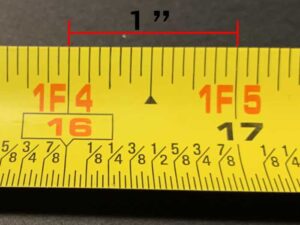The pescatarian diet weight loss journey is a unique and rewarding one. Embark on this adventure to discover how incorporating seafood into your diet can transform your health and well-being.
This comprehensive guide delves into the nutritional benefits, potential health advantages, and weight loss mechanisms associated with a pescatarian lifestyle. Learn how this diet can promote satiety, reduce calorie intake, and contribute to overall wellness.
Overview of Pescatarian Diet
The pescatarian diet is a type of semi-vegetarian diet that includes fish and other seafood, but excludes all other types of meat. Pescatarians typically eat a variety of plant-based foods, including fruits, vegetables, whole grains, and legumes, as well as dairy products and eggs.
Some pescatarians also choose to include small amounts of poultry or meat in their diet.
The pescatarian diet is becoming increasingly popular, with an estimated 2-3% of the population in the United States identifying as pescatarian. This increase in popularity is likely due to a number of factors, including the growing awareness of the health benefits of a plant-based diet, the environmental concerns associated with meat production, and the increasing availability of plant-based foods.
Adopting a vegan lifestyle requires careful attention to vegan dietary requirements . Vegans abstain from all animal products, including meat, dairy, eggs, and honey. This means they must rely on plant-based sources to meet their nutritional needs. Essential nutrients such as protein, iron, calcium, and vitamin B12 can be obtained from a well-planned vegan diet that includes legumes, fortified plant milks, leafy greens, and nutritional yeast.
Principles of a Pescatarian Diet, Pescatarian diet weight loss
The principles of a pescatarian diet are simple: eat plenty of plant-based foods, including fruits, vegetables, whole grains, and legumes; include fish and other seafood in your diet; and limit or avoid all other types of meat. Pescatarians can choose to follow a vegetarian diet for ethical or environmental reasons, or they may simply prefer the taste of fish and seafood.
Whatever the reason, a pescatarian diet can be a healthy and sustainable way to eat.
Nutritional Profile of Pescatarian Diet
A pescatarian diet, which incorporates seafood while excluding other animal meats, offers a distinct nutritional profile. It is rich in macronutrients like protein, carbohydrates, and healthy fats, along with a diverse range of micronutrients.
Macronutrient Content
Pescatarian diets typically provide adequate protein, primarily from fish and seafood. Protein is essential for building and repairing tissues, supporting muscle growth, and maintaining overall health.
Carbohydrates, the primary energy source for the body, are obtained from fruits, vegetables, whole grains, and legumes in a pescatarian diet. These complex carbohydrates provide sustained energy throughout the day.
Healthy fats, such as omega-3 fatty acids, are abundant in fish and seafood. Omega-3s are crucial for brain health, heart health, and reducing inflammation.
Micronutrient Content
Pescatarian diets are rich in various micronutrients, including:
- Vitamin B12:Essential for red blood cell production and nerve function, primarily obtained from fish and seafood.
- Iron:Important for oxygen transport, found in fish, shellfish, and leafy green vegetables.
- Calcium:Necessary for strong bones and teeth, present in dairy products and fortified plant-based alternatives.
- Iodine:Crucial for thyroid hormone production, primarily obtained from seafood.
- Zinc:Supports immune function and wound healing, found in fish, shellfish, and nuts.
Compared to other dietary patterns, pescatarian diets have been associated with lower risks of cardiovascular disease, stroke, and certain types of cancer. They offer a balance of essential nutrients while limiting the consumption of saturated fats and cholesterol found in animal meats.
Potential Health Benefits of Pescatarian Diet
A pescatarian diet offers various potential health benefits, ranging from a reduced risk of cardiovascular disease to certain types of cancer. Scientific studies and reputable health organizations have highlighted these advantages, emphasizing the positive impact of incorporating fish and seafood into a balanced diet.
Reduced Risk of Cardiovascular Disease
Research suggests that a pescatarian diet may lower the risk of cardiovascular disease. Fish and seafood are rich in omega-3 fatty acids, which have anti-inflammatory properties. These fatty acids help reduce blood pressure, improve cholesterol levels, and prevent blood clots, all of which contribute to a healthier heart.
Reduced Risk of Certain Types of Cancer
Studies have also linked a pescatarian diet to a reduced risk of certain types of cancer, particularly those related to the digestive system. Fish and seafood are good sources of antioxidants and anti-inflammatory compounds, which may protect cells from damage and reduce the risk of cancer development.
Weight Loss and Pescatarian Diet
If you’re looking to shed a few kilos, adopting a pescatarian diet could be a smart move. This eating pattern, which includes fish and other seafood but excludes meat and poultry, has been linked to several weight loss benefits.
Mechanisms for Weight Loss
One of the reasons why a pescatarian diet may promote weight loss is because it’s rich in protein. Protein is an essential nutrient that helps keep you feeling full and satisfied, which can lead to reduced calorie intake. Additionally, fish and seafood are generally lower in calories than meat and poultry, making them a good choice for weight loss.
Another potential benefit of a pescatarian diet for weight loss is that it’s high in fiber. Fiber is a type of carbohydrate that your body can’t digest. It helps to keep you feeling full and satisfied, and it can also help to regulate your blood sugar levels.
This can lead to reduced cravings and a lower overall calorie intake.
Finally, a pescatarian diet is a good source of omega-3 fatty acids. These fatty acids have been shown to have a number of health benefits, including reducing inflammation and improving heart health. They may also help to boost your metabolism, which can lead to increased calorie burn.
Challenges and Considerations of Pescatarian Diet
Adopting a pescatarian diet can present certain challenges and considerations. These include:
- Access to fish and seafood:Depending on geographic location and availability, accessing fresh or affordable fish and seafood may be difficult. Consider frozen or canned options as alternatives.
- Nutrient deficiencies:Pescatarians may need to pay attention to their intake of certain nutrients, such as vitamin B12, iron, and omega-3 fatty acids. Incorporating fortified foods, supplements, or consulting a healthcare professional can help address these potential deficiencies.
- Social implications:In some social settings, pescatarians may face limited dining options or social pressure to consume meat. Communicate your dietary choices respectfully and explore alternative dishes or bring your own food to social gatherings.
Comparison of Pescatarian Diet to Other Diets
The pescatarian diet is a popular weight loss diet that focuses on consuming fish and seafood while limiting meat and poultry. However, how does it compare to other popular weight loss diets like the Mediterranean diet, vegetarian diet, or low-carb diet?
Similarities and Differences
The pescatarian diet shares some similarities with other diets. Like the Mediterranean diet, it emphasizes consuming plenty of fruits, vegetables, and whole grains. The vegetarian diet also restricts meat consumption, while the low-carb diet limits carbohydrate intake.However, the pescatarian diet is unique in that it allows for the consumption of fish and seafood.
This provides a source of omega-3 fatty acids, which are essential for heart health and may support weight loss.
Potential Advantages and Disadvantages
Each diet has its own potential advantages and disadvantages. The pescatarian diet may be easier to follow than a vegetarian or vegan diet, as it allows for the consumption of animal products. However, it may be more restrictive than the Mediterranean diet, which is generally considered a well-balanced and sustainable way of eating.The
low-carb diet can be effective for short-term weight loss, but it can be difficult to maintain over the long term. It can also lead to nutrient deficiencies if not followed carefully.Ultimately, the best diet for you is the one that you can stick to long-term.
If you’re considering trying the pescatarian diet, be sure to talk to your doctor or a registered dietitian to make sure it’s right for you.
Sample Pescatarian Meal Plan
Embarking on a pescatarian diet doesn’t have to be a culinary conundrum. Here’s a 7-day meal plan to guide you through the delicious and nutritious journey of this seafood-centric eating style.
Embracing a vegan lifestyle demands careful attention to nutritional needs. Vegan dietary requirements encompass a wide range of nutrients, including protein, iron, calcium, and vitamin B12. While plant-based foods offer an abundance of these essential elements, it’s crucial to ensure adequate intake through a balanced diet or supplementation.
This meal plan incorporates a variety of seafood options, along with plant-based ingredients to ensure you meet your nutritional needs while enjoying a flavorful and satisfying diet.
Day 1
- Breakfast:Oatmeal with berries and nuts
- Lunch:Grilled salmon salad with mixed greens, vegetables, and quinoa
- Dinner:Pan-seared tuna steak with roasted vegetables and brown rice
Day 2
- Breakfast:Greek yogurt with fruit and granola
- Lunch:Lentil soup with a side of whole-wheat bread
- Dinner:Baked cod with lemon and herbs, served with roasted asparagus and mashed potatoes
Day 3
- Breakfast:Scrambled eggs with smoked salmon and avocado toast
- Dinner:Grilled shrimp skewers with pineapple and bell peppers, served with quinoa
li> Lunch:Tuna salad sandwich on whole-wheat bread with mixed greens
Wrap-Up
Adopting a pescatarian diet is a transformative choice that offers a myriad of health benefits. From reducing the risk of chronic diseases to promoting weight loss, this dietary approach empowers individuals to make healthier and more sustainable food choices. Embrace the pescatarian lifestyle and unlock a world of culinary delights while nourishing your body and mind.
Expert Answers: Pescatarian Diet Weight Loss
What are the key principles of a pescatarian diet?
A pescatarian diet excludes meat and poultry but allows for the consumption of fish and seafood. It emphasizes plant-based foods, including fruits, vegetables, whole grains, and legumes.
How does a pescatarian diet promote weight loss?
Fish and seafood are excellent sources of lean protein, which promotes satiety and reduces overall calorie intake. Additionally, the high fiber content in plant-based foods helps regulate blood sugar levels and curb cravings.
What are some potential challenges of adopting a pescatarian diet?
Access to fresh fish and seafood can be limited in certain areas. Additionally, ensuring adequate intake of certain nutrients, such as vitamin B12 and iron, requires careful planning.





Leave a Comment